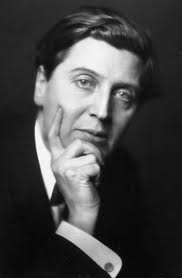February 4, 2019. Berg, Leinsdorf, Björling. We have three anniversaries this week, that of a composer, a conductor, and of a tenor. The composer is Alban Berg, born on February 9th of  1885 in Vienna. One of the greatest modernists of the 20th century, he is mostly known for two groundbreaking operas: Wozzeck, the first atonal opera of the 20th century, which Berg completed in 1922, and Lulu, which he started in 1929 and worked on for the next seven years till his death in 1935, still leaving it incomplete. The libretto for Wozzeck Berg wrote himself, following Georg Büchner’s play Woyzeck; Berg also wrote the libretto for Lulu, this time based on the play, Erdgeist, by another famous German playwright, Frank Wedekind. By the time of Berg’s death, anti-Semitism was rampant not just in Nazi Germany but in Austria as well. Berg’s “problem” was that he was a student of Arnold Schoenberg, a Jew. Wozzeck stopped being performed in 1932, and all of Berg’s music was prohibited in Germany in 1935 as “degenerate music.” Wozzeck, as complex as it was, proved that an atonal work could bring enough auditory, rhythmical and emotional dynamics to keep listeners rapt for 100 minutes. Lulu was even more difficult and, at approximately three hours, much longer. It was premiered, in its incomplete form, in 1949: Berg’s widow, Helen, wanted Schoenberg to complete the score but the master declined; Helen wouldn’t let anybody else touch it. Following Helen Berg’s death in 1976, Austrian composer Friedrich Cerha completed the orchestration of the 3rd act. The first performance of the complete opera took place in Paris’s Palais Garnier in 1979 with Pierre Boulez on the podium. This became the standard version, performed in major opera houses. Here are five minutes from Act III ("Wer ist das?" – “Who is this?”). Teresa Stratas (she was one of the best Lulus on the opera scene) sings the role of the protagonist; Franz Mazura is Jack. Pierre Boulez conducts Orchestre de l'Opéra de Paris.
1885 in Vienna. One of the greatest modernists of the 20th century, he is mostly known for two groundbreaking operas: Wozzeck, the first atonal opera of the 20th century, which Berg completed in 1922, and Lulu, which he started in 1929 and worked on for the next seven years till his death in 1935, still leaving it incomplete. The libretto for Wozzeck Berg wrote himself, following Georg Büchner’s play Woyzeck; Berg also wrote the libretto for Lulu, this time based on the play, Erdgeist, by another famous German playwright, Frank Wedekind. By the time of Berg’s death, anti-Semitism was rampant not just in Nazi Germany but in Austria as well. Berg’s “problem” was that he was a student of Arnold Schoenberg, a Jew. Wozzeck stopped being performed in 1932, and all of Berg’s music was prohibited in Germany in 1935 as “degenerate music.” Wozzeck, as complex as it was, proved that an atonal work could bring enough auditory, rhythmical and emotional dynamics to keep listeners rapt for 100 minutes. Lulu was even more difficult and, at approximately three hours, much longer. It was premiered, in its incomplete form, in 1949: Berg’s widow, Helen, wanted Schoenberg to complete the score but the master declined; Helen wouldn’t let anybody else touch it. Following Helen Berg’s death in 1976, Austrian composer Friedrich Cerha completed the orchestration of the 3rd act. The first performance of the complete opera took place in Paris’s Palais Garnier in 1979 with Pierre Boulez on the podium. This became the standard version, performed in major opera houses. Here are five minutes from Act III ("Wer ist das?" – “Who is this?”). Teresa Stratas (she was one of the best Lulus on the opera scene) sings the role of the protagonist; Franz Mazura is Jack. Pierre Boulez conducts Orchestre de l'Opéra de Paris.
Erich Leinsdorf was also born in Vienna, on February 4th of 1912. As a young conductor, he assisted Bruno Walter and Arturo Toscanini at the Salzburg Festival for three years, from 1934 to 1937. In November of 1937, Leinsdorf, who was Jewish, traveled to the United States. Four months later, Nazi Germany took over Austria in the infamous Anschluss; Leinsdorf stayed in the US and became a citizen in 1942. Leinsdorf had led several major American orchestras, from the Cleveland to the Boston, he also had a long association with the Metropolitan opera. Here is Overture and Venusberg Music from Wagner’s Tannhäuser. Erich Leinsdorf leads the Boston Symphony Orchestra in the 1964 recording.
Jussi Björling was one of the supreme tenors of the 20th century. He was probably the only non-Italian who was an equal to the greatest Italian tenors in the Verdi repertoire. Björling was born in the town of Borlänge in central Sweden on February 5th of 1911. He made his professional debut at the Royal Swedish Opera in 1930. Recognition came to him early: in 1936 he debuted at the Vienna Opera, and one year later he sung in Chicago. He first performed at the Met was in 1938 and at the Covent Garden – in 1939. Björling had an exceptionally beautiful voice which had an amazing consistency from the top to bottom of his register. Björling’s life was tragically short: he died at the age of 49 after suffering a heart attack during a performance of La Boheme at Covent Garden six months earlier (he completed the performance). Here’s Jussi Björling in the aria Una furtiva lagrima" from Act II of L'elisir d'amore by Gaetano Donizetti. This recording was made in December of 1947.
| Source: | https://www.classicalconnect.com/node/12856 |
| Website: | Classical Connect |